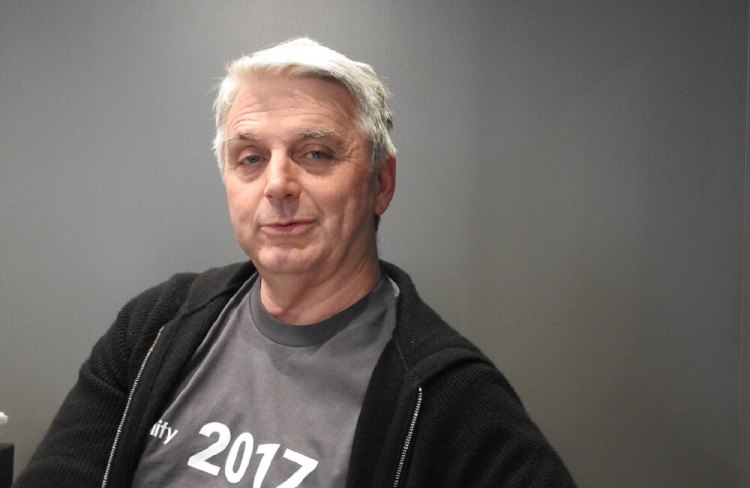From what we hear, a lot of investors in Silicon Valley wanted to get in on Unity Technologies’ $400 million funding round. Unity received bids, or term sheets, for more than three times the amount of money it was seeking, according to a source familiar with the matter.
And that puts John Riccitiello, the CEO of San Francisco-based Unity, in a strong position. He raised money for the game engine maker at a time when he didn’t need it, and he was able to provide liquidity for some of the company’s 1,400 employees, as about half of the $200 million went to the employees. Riccitiello said the remaining founders, David Helgason and Joachim Ante, still hold a substantial amount of stock, and the founders and employees still hold a majority share of the company.
In the meantime, Silver Lake’s managing director Egon Durban, who negotiated the deal for his company, is joining Unity’s board of directors, joining other outside directors Roelof Botha of Sequoia Capital and Barry Schuler of DFJ Growth. The deal is subject to regulatory approval. I interviewed Riccitiello yesterday about the investment. He said that Unity stands in a unique position, as it could do for games what Adobe has done for photography: becoming the de facto content creation engine.
Founded in 2004, Unity’s plan is to democratize game development. It has done so by creating an engine that runs games on just about any platform, without huge costs related to porting projects to each new platform. This enables game developers to cut their costs and generate more revenues from more platforms. In that sense, Unity frees the developers from being beholden to platform owners, who often front the cash for big game development in exchange for exclusivity.
Riccitiello feels like Unity is gaining momentum in game engines, where the company’s main competition is the internally produced game engines at game development companies. He said that Unity powers more than 50 percent of mobile games and about half of all PC games. Games and apps made with Unity reach more than 2.4 billion devices. And Riccitiello also feels that Unity has the lead in the platforms of the future, which include AR and VR, where he said it has a 70 percent share.
Here’s an edited transcript of our interview.
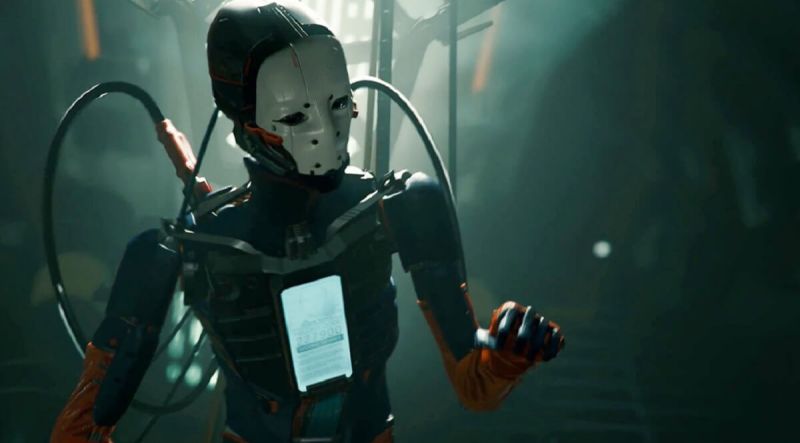
Above: Adam demo, built with Unity engine.
GamesBeat: What’s the reason for raising this round?
John Riccitiello: To be honest with you, there isn’t a great one. Part of it was getting secondary so my employees can live their lives. And then the second thing is, I’m a believer in the principle that you raise money when you can, not when you need to. Our business is doing exceptionally well, so we chose to raise capital. There wasn’t a particular need.
The board debated this with me quite a lot. “Why are you doing this?” I said, “Because we can. If we ever need to, that’s when we probably can’t.” There weren’t a whole lot of specific reasons to do it.
GamesBeat: Are the founders still holding stock?
Riccitiello: David Helgason and Joachim Ante are both still on the board, and they continue to hold substantial amounts of stock. They’re the largest individual shareholders. Sequoia in aggregate are larger, but the founders are right after.
GamesBeat: What’s the winning pitch here? Why do you think investors responded so well?
Riccitiello: The notion, I think, is pretty simple. We’re more than 50 percent of all new mobile games now, and that number is rising. There’s obviously a great business over time if you have more than half of new mobile content based on your platform. That’s the conceit than an Adobe or an AutoDesk is built on. AutoDesk has architecture, engineering, and construction as a main emphasis. Adobe has content creators all over the world. Photoshop is a fundamental app behind almost every photo in the world. They’ve built up a $60 billion empire around that. They have other things around it, but Photoshop is at the center of what they’re offering.
There’s a general belief that, in the course of the next 10 to 15 years, one version or another of AR, VR, XR, MR, call it whatever you want to—basically, you’ll have an augmented world, and it’s going to be as big a deal as the internet. Your electrician will have AR glasses on to figure out what wire to connect to what part of your house. You’ll put your glasses on to look in a box of IKEA parts and it’ll tell you how to put it together. I’ve had laparoscopic surgery on my shoulder. Right now the doctors look at flat screens and operate from there, but put in two cameras and you’ll get a full VR perspective with much greater fidelity. Entertainment, obviously – you can feel like you’re in the middle of the Taj Mahal. Massive military applications. Every architect in the world is now starting to show stadiums and basketball courts or whatever else filled with people. They’re doing that using Unity.
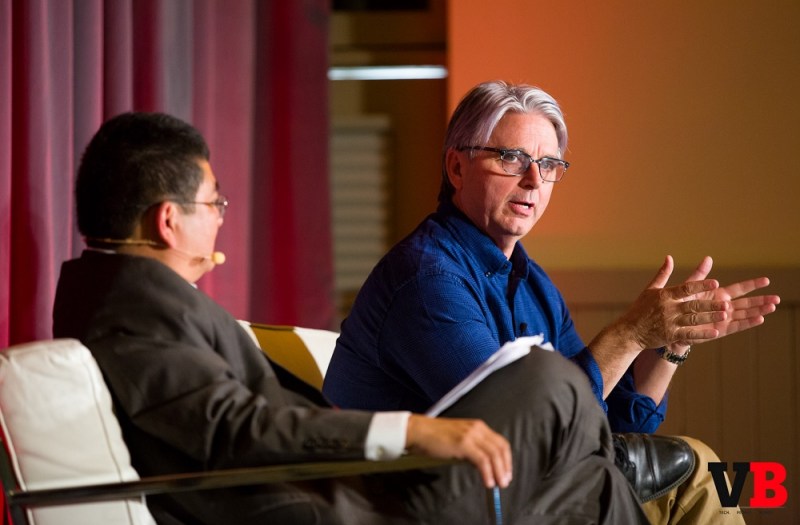
Above: John Riccitiello, CEO of Unity, speaking at the GamesBeat Summit about the “gap of disappointment” for VR.
The analogy I would make: internet 1.0 was 28K modems. Internet 2.0 was broadband with a flat screen. Internet 3.0 will be interacting with all that data. The scientists running the Large Hadron Collider in Switzerland use Unity to look at the data coming out of their streams of particles running into each other. In the same way everyone uses Photoshop to work with a flat image, you’re going to need a game engine — or basically a rendering, animation, physics, and lighting pipeline – in order to see the world in this internet 3.0. Every smart person I know believes in that. With a 70 share we’re in a position to be that company and follow a trajectory similar to Adobe.
Our roots are in gaming. We focus incredibly on gaming. It’s a huge part of what we do and we’re never going to forget it. But it turns out that a game engine is just what we need for everything else. We go from being a company that serves .25 percent of the world’s economy, or whatever gaming is, to serving financial institutions, big data, all the auto companies—there’s a general belief that we’ll go to the other 99 percent of the economy. Amazon is developing a VR version of everything they sell. Because of our 70 share most of that’s going to be built in Unity – literally tens of thousands of customer items that people can pick up and believe in.
There’s a genuine belief that you can’t lose with a dominant position in gaming. But you can win huge, in a way analogous to Adobe, because the next 15 years for this kind of product, thanks to AR and VR, is probably going to mirror the rise of Photoshop from 1999 to 2015, which in aggregate added $55 billion to Adobe. They built a lot of services around it, but central to what they offer is Photoshop. There’s always one app that’s going to rule them all. Unity can be that engine. That’s the investment thesis.
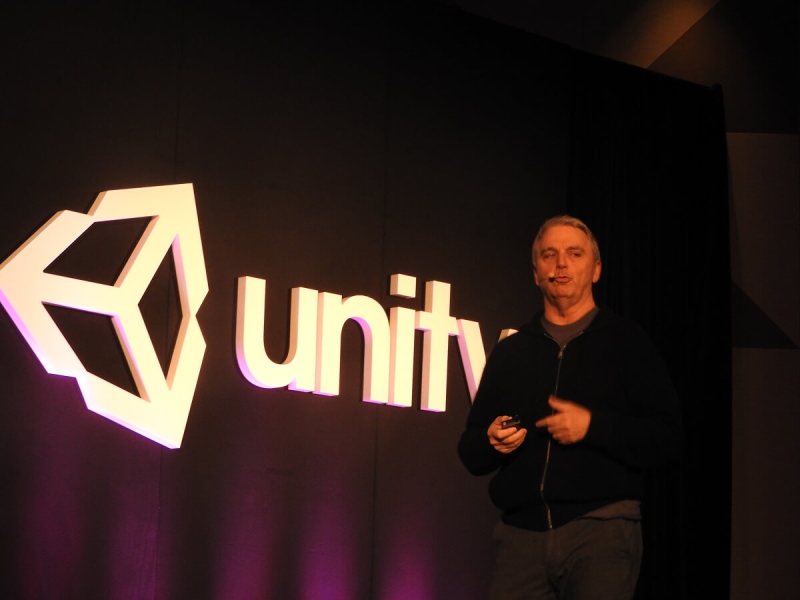
Above: John Riccitiello, CEO of Unity, at GDC 2017.
GamesBeat: For the investors, is there a timetable now? Are they now the majority of the ownership?
Riccitiello: No, they’re not a majority yet. The majority of the company is still owned by the founders and the employees. I’ve told them that we’re not doing an IPO before 2019, and I don’t know if we’re going to do one in 2019. There are lots of reasons to continue to grow our business the way we’re doing it. What every investor says now, and it’s sort of a knee-jerk thing, is that they’re patient. Sequoia’s been in this for eight years. They all say that, I think, because they don’t want to not get chosen because they’re in a hurry to generate liquidity on an investment they haven’t even made yet. But that’s what they’ve all said. They’re in it for the long term.
At some point, Unity is Switzerland, right? We serve all platforms. We’re better as an independent company. The long-term outcome is likely an IPO. But for now we have adequate capital. We don’t need to do an IPO any time soon. We’ll pick the right time for it.
GamesBeat: How do you feel about competing with Epic and Tencent, their big investor?
Riccitiello: Tencent is over in China, and the number one game in the world is an investment from Tencent. Their top-of-the-charts product is apparently generating $15 or $20 million a day in revenue. But I don’t think Tencent actually uses Unreal. The primary market today is mobile, and we’re 40 times bigger than Unreal there. In VR and AR we’re four to five times as large.
Frankly, I respect Tim Sweeney. He’s a smart fucker. He’s good at what he does. I like having him out there, because he keeps us on our toes. There’s no lack of respect here for Epic. We’re much larger. We’re gaining faster. Last year in mobile we gained the equivalent of six Epics in terms of market share growth. It’s not like we’re afraid them. We’re growing a lot more rapidly than they are. But—I think back to the time you and I first met. I thought it was good back when there was more than one football game in the market. Madden competed with Sony and with Sega and Acclaim. That was good. I think it’s fine that they’re out there. I have nothing negative to say about Epic at all.
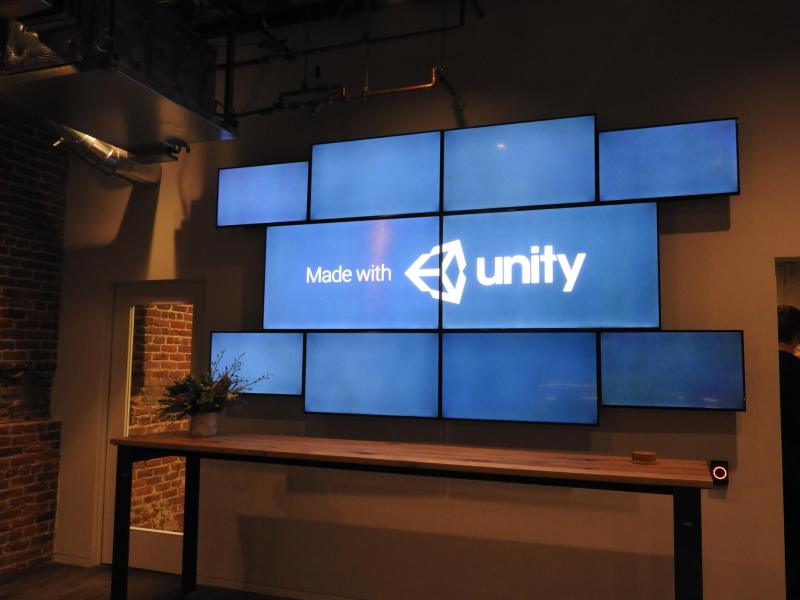
Above: Unity headquarters in San Francisco
GamesBeat: And Amazon gives you motivation as well?
Riccitiello: Competition is a good thing. We’d be lazy if we didn’t have anybody to compete with. Or maybe we wouldn’t be. I’m a self-starter. But it’s fine that they’re out there.
GamesBeat: You’re at 1,400 employees. Do you expect that to change soon?
Riccitiello: We’re hiring 10 or 15 people a week, so yeah, that number changes. But every company like ours has some attrition. We’re at a low attrition number. We’ll probably finish the year with 1,500 to 1,600. We’re not hiring like we were two years ago, building up the company to do all the stuff we’re able to do now. But we’re still growing. Revenue is growing even faster.
GamesBeat: Are we pulling out of your trough of disillusionment yet in VR?
Riccitiello: There are two different audiences I speak to there. One audience is people that are waiting for consumer penetration of the device. They’re waiting for 100 million to 200 million. We’re not out of that yet. That picks up 2019. You’ve heard me talk about this more than once. Pricing goes down, content comes up, and functionality of the devices improves. That’s 2019-2021 before that kicks in in a big way.
The second thing is, I speak to people in the auto industry and the aerospace industry and the big data world and the architecture world and the construction environment. They’re all buying in now. They’re buying in not because they need thousands of head-mounted displays, but because they need to use VR to help illustrate what they’re doing, help people understand what they’re doing, or better design what they’re doing. The B-to-B side of this is moving now.
When I talk about the “gap of disappointment,” if you want to quote me correctly—it’s actually quite a funny story. The original version was a talk I gave 16 or 17 months ago. I pointed out that a bunch of these forecasts from analysts – SuperData was one of them – were just ridiculous. I showed the gap and tried to forewarn people. They later brought their numbers down and called it the “trough of disillusionment” or something like that. Like, do I have to re-trademark my quote?
It’s a short-term notion, this gap idea. The consumer market, while it’s there now, is really largely hobbyists. They need lower pricing, more functionality, and more content before the consumer market starts getting into the tens of millions the way consoles did. It’ll take a while. Then it’ll go way past consoles, because there are so many more uses. But in the near term, it’ll take a couple of years.
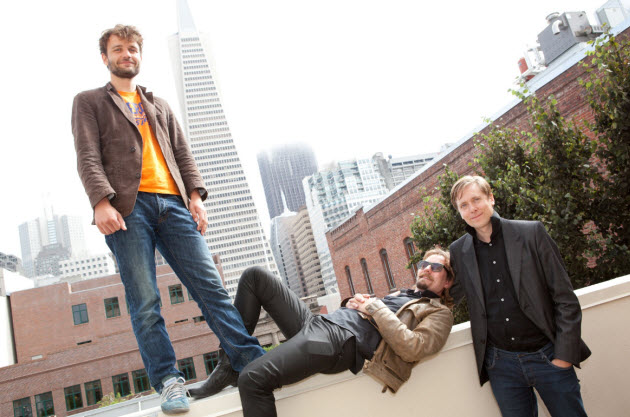
Above: Unity founders, Joachim Ante (left), Nicholas Francis, and David Helgason
GamesBeat: As far as where you guys are going, do you think you drive market share in consoles and PC on the high end, or are you more bypassing that and going straight into VR?
Riccitiello: We’re seeing our market share rise pretty dramatically in console. We’re about a 35 share now. But I think that realistically—if I counted it right, I was involved in the creation of 11 game engines at EA. There are companies that are very engineering-centric that are going to continue to build their own tech. EA is one of them. I admire them for that. But ultimately probably 80 percent of console ends up on third party tech, because it’s not a super efficient thing for game companies to build their own tech. It’s a better return on investment and otherwise more appropriate for them to invest in creating the world’s best content.
If you look at things like the Adam demo, which is built in Unity—you’ve seen that a couple of times. You’ll see some stuff in Amsterdam that’s even sharper looking. You can easily build triple-A content in Unity and it saves time and money. But there are companies out there that will continue to invest in building their own core tech. Samurai sword makers in Japan have their own steel smelters, even though there are cheaper and faster ways to source steel. My point is, that’s always going to happen and I don’t begrudge that. I don’t think third party game engine tech will ever be 100 percent. It’ll probably get to 80 and maybe even 90, but I don’t think it’ll ever completely take over.
